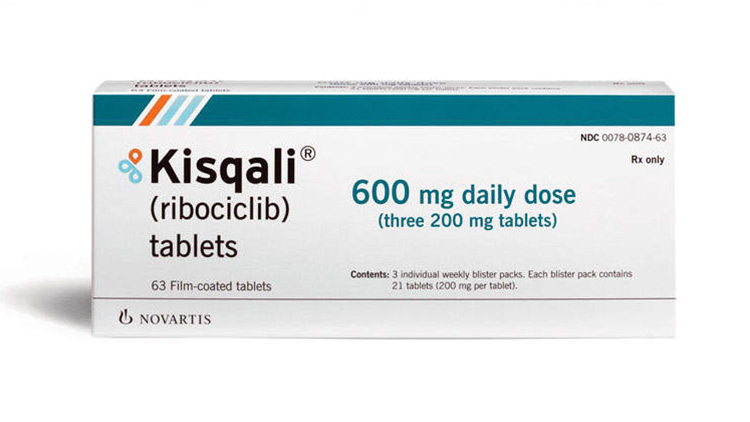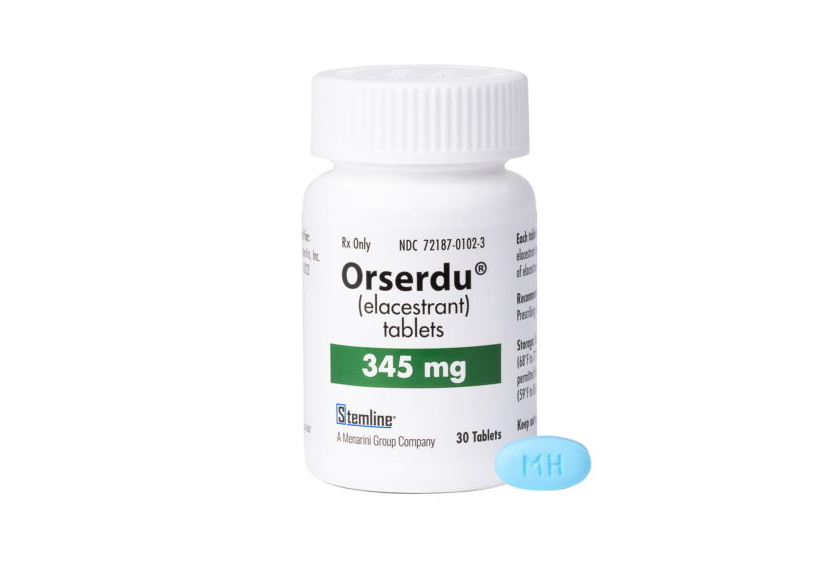Kisqali (ribociclib) vs Orserdu (elacestrant)
Kisqali (ribociclib) vs Orserdu (elacestrant)
Kisqali (ribociclib) is a CDK4/6 inhibitor used in combination with hormone therapy for the treatment of HR-positive, HER2-negative advanced or metastatic breast cancer, primarily in postmenopausal women. Orserdu (elacestrant) is an oral selective estrogen receptor degrader (SERD) that targets estrogen receptor-positive (ER+) breast cancer and may be used in patients who have previously received endocrine therapy. When deciding between these two medications, a patient's specific type of breast cancer, previous treatments, and any potential resistance to hormone therapy should be considered, and the decision should be made in consultation with an oncologist who can evaluate the individual's medical history and the specific characteristics of their cancer.
Difference between Kisqali and Orserdu
| Metric | Kisqali (ribociclib) | Orserdu (elacestrant) |
|---|---|---|
| Generic name | ribociclib | elacestrant |
| Indications | HR-positive, HER2-negative advanced or metastatic breast cancer | ER+/HER2- advanced or metastatic breast cancer |
| Mechanism of action | CDK4/6 inhibitor | Estrogen receptor degrader |
| Brand names | Kisqali | Orserdu |
| Administrative route | Oral | Oral |
| Side effects | Neutropenia, nausea, infections, fatigue, diarrhea | Not fully characterized; similar drugs cause hot flashes, arthralgia, nausea |
| Contraindications | Hypersensitivity to ribociclib; concurrent use with strong CYP3A inhibitors or inducers | Not fully characterized; likely similar to other estrogen receptor degraders |
| Drug class | CDK4/6 inhibitor | Selective estrogen receptor degrader (SERD) |
| Manufacturer | Novartis | Radiopharm Theranostics |
Efficacy
Kisqali (Ribociclib) Efficacy in Treating Breast Cancer
Kisqali (ribociclib) is a targeted therapy medication that has shown efficacy in the treatment of certain types of breast cancer. Specifically, Kisqali is approved for the treatment of hormone receptor-positive (HR+), human epidermal growth factor receptor 2-negative (HER2-) advanced or metastatic breast cancer. It is used in combination with an aromatase inhibitor or fulvestrant as initial endocrine-based therapy or following disease progression on endocrine therapy. Clinical trials have demonstrated that ribociclib, in combination with letrozole, significantly improves progression-free survival compared to letrozole alone. This benefit is observed in postmenopausal women with HR+/HER2- advanced breast cancer.
Several pivotal studies, such as the MONALEESA-2, MONALEESA-3, and MONALEESA-7 trials, have supported the approval and use of Kisqali. These studies have shown that when used in combination with either an aromatase inhibitor or fulvestrant, Kisqali has led to a notable delay in disease progression. The MONALEESA-7 trial specifically addressed premenopausal women and also found that ribociclib, when used with endocrine therapy and ovarian suppression, improved survival outcomes.
Orserdu (Elacestrant) Efficacy in Treating Breast Cancer
Orserdu (elacestrant) is a newer oral selective estrogen receptor degrader (SERD) that has shown promise in the treatment of estrogen receptor-positive (ER+), HER2- advanced or metastatic breast cancer in postmenopausal women or in men. Elacestrant is designed to target and degrade the estrogen receptor, thereby inhibiting the growth of cancer cells that rely on estrogen signals. Clinical trials evaluating the efficacy of Orserdu have demonstrated its potential as a treatment option for patients with advanced breast cancer who have received prior endocrine therapy.
The efficacy of Orserdu was highlighted in the EMERALD phase 3 trial, which showed that elacestrant significantly improved progression-free survival compared to standard endocrine therapies in patients with ER+/HER2- advanced or metastatic breast cancer. The trial included patients who had disease progression on or after one or two lines of endocrine therapy, indicating that Orserdu could be an effective treatment option for patients with advanced disease who have previously been treated with other endocrine therapies. The results of the EMERALD trial are particularly important as they suggest a potential new line of treatment for patients with limited options after standard therapies.
Regulatory Agency Approvals
Kisqali
-
European Medical Agency (EMA), European Union

-
Food and Drug Administration (FDA), USA

-
Health Canada

-
Therapeutic Goods Administration (TGA), Australia

-
Medsafe (NZ)

Orserdu
-
Food and Drug Administration (FDA), USA

Access Kisqali or Orserdu today
If Kisqali or Orserdu are not approved or available in your country (e.g. due to supply issues), you can access them via Everyone.org.
How it works

Make an enquiry
Choose the medicine you want to buy, answer a couple of questions, and upload your prescription to speed things up. We’ll get back to you within 24 hours.


Make an enquiry
Choose the medicine you want to buy, answer a couple of questions, and upload your prescription to speed things up. We’ll get back to you within 24 hours.


Breeze through the paperwork
We'll guide you through the required documents for importing unapproved medicine, ensuring you have all the necessary information.


Get a personalized quote
We’ll prepare a quote for you, including medicine costs and any shipping, administrative, or import fees that may apply.


Receive your medicine
Accept the quote and we’ll handle the rest - sourcing and safely delivering your medicine.

Some text on this page has been automatically generated. Speak to your physician before you start a new treatment or medication.
Let's talk
If you have any questions, call us or send us a message through WhatsApp or email:
Contact us




